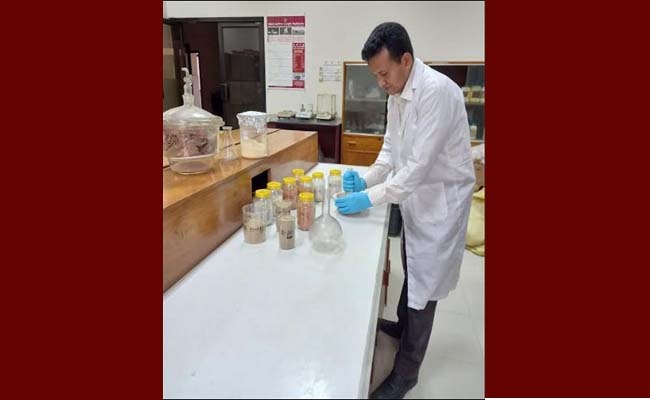

Dr. Sopan Das, a distinguished scientist with the Bangladesh Atomic Energy Commission (BAEC), has made remarkable strides in radiation detection, significantly contributing to public health and safety. With over a decade of experience at BAEC, Dr. Das's groundbreaking work and innovations have garnered national and international attention. His academic credentials are impressive, with a Masters and PhD in Nuclear and Quantum Engineering from the prestigious Korea Advanced Institute of Science and Technology (KAIST). This robust education has enabled him to tackle complex issues related to radiation and its impact on health effectively.
During his PhD, Dr. Das invented the Radon Thoron Discriminative Detector, a groundbreaking device capable of detecting both radon and thoron gases separately in the air. These gases are the second leading cause of lung cancer, making his invention a significant breakthrough in mitigating health risks. Unlike existing detectors that fail to differentiate between radon and thoron or do so inefficiently, Dr. Das's detector offers precise and reliable detection, enhancing safety measures for individuals and communities. The detector stands out for its potential to reduce lung cancer cases by providing accurate readings of harmful gases in homes and workplaces. By adhering to World Health Organization (WHO) guidelines, individuals can take necessary precautions to lower gas levels, thereby decreasing cancer risks. The device’s affordability, priced at around $300 compared to the $7,000 price tag of other detectors, makes it accessible to a broader audience, especially in developing countries where awareness of radon and thoron-related health issues is limited.
Dr. Das’s invention holds substantial commercial potential, with opportunities for pilot projects and collaborations with private and multinational companies. Initially piloted with a small company in South Korea, the detector is now poised for broader market introduction. Dr. Das is eager to partner with stakeholders interested in advancing public health through innovative technology. His career at BAEC has been marked by progressive roles, from Scientific Officer at the Institute of Nuclear Medicine and Allied Sciences in Chattogram to his current position as Senior Scientific Officer at the Atomic Energy Centre in Chattogram. His expertise spans radiation detection methods, measurement techniques, and nuclear medicine applications.
Beyond his professional achievements, Dr. Das has an extensive list of publications, reflecting his deep engagement with research and development. His papers, including studies on radon in river water and real-time discriminative detection techniques, have been featured in reputable journals such as Nuclear Engineering and Technology and Environmental Nanotechnology, Monitoring & Management. The innovative Radon Thoron Discriminative Detector is patented in South Korea, with the application number 10-2022-0043632, underscoring the scientific and commercial viability of his work.
Dr. Das's contributions extend beyond Bangladesh. He has participated in international conferences and training programs, sharing his expertise and collaborating with global peers. His travels for academic and professional purposes include countries like Indonesia, India, and South Korea, enhancing his global perspective on nuclear science and technology. Recognizing his exceptional innovation in promoting Good Health & Wellbeing (SDG 3), Dr. Das was awarded the SDG Innovation Award. His pioneering efforts have led to substantial improvements in healthcare delivery systems, particularly in underserved communities, thus promoting better health outcomes and advancing SDG 3. Additionally, he received the Green Innovation Award 2023, further cementing his reputation as a leading innovator in the field.
Dr. Sopan Das continues to push the boundaries of scientific innovation, dedicated to improving public health through advanced radiation detection solutions. His work exemplifies the critical role of scientific research in addressing real-world challenges and enhancing the quality of life.
